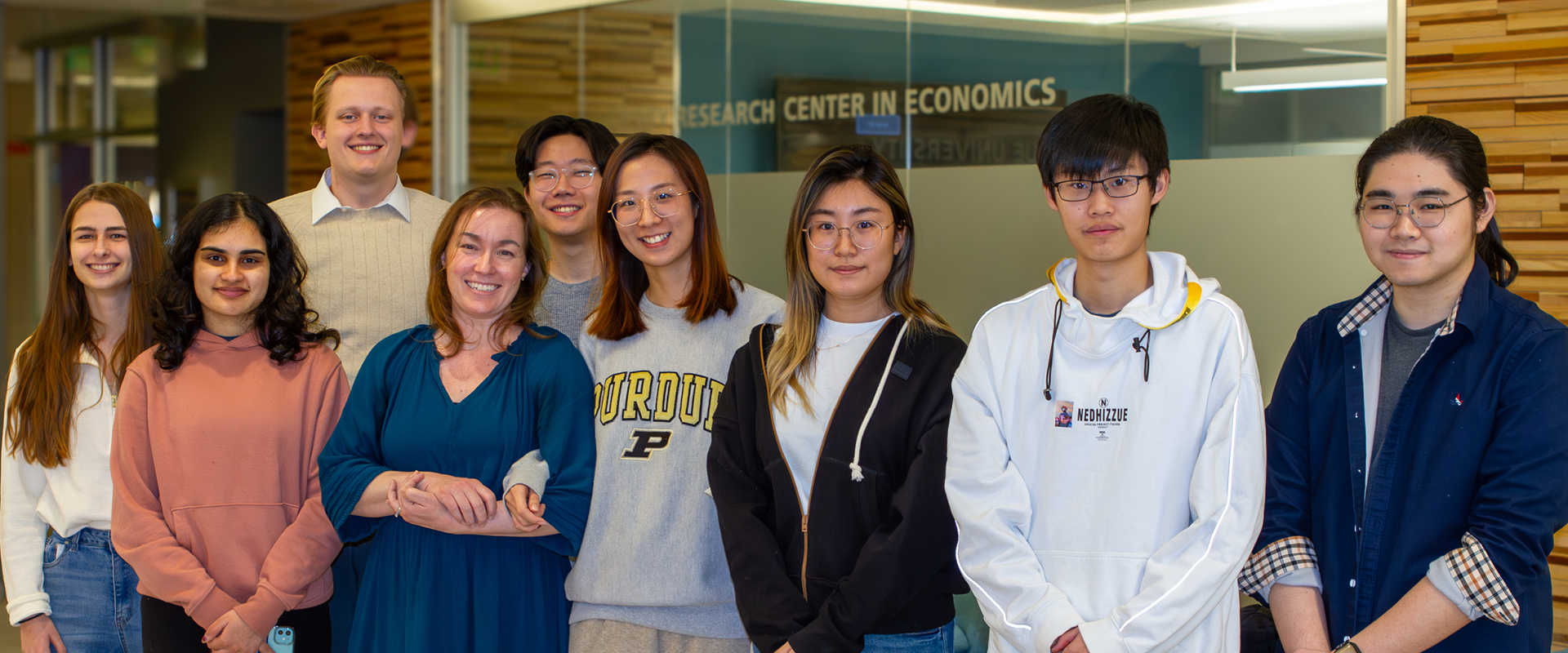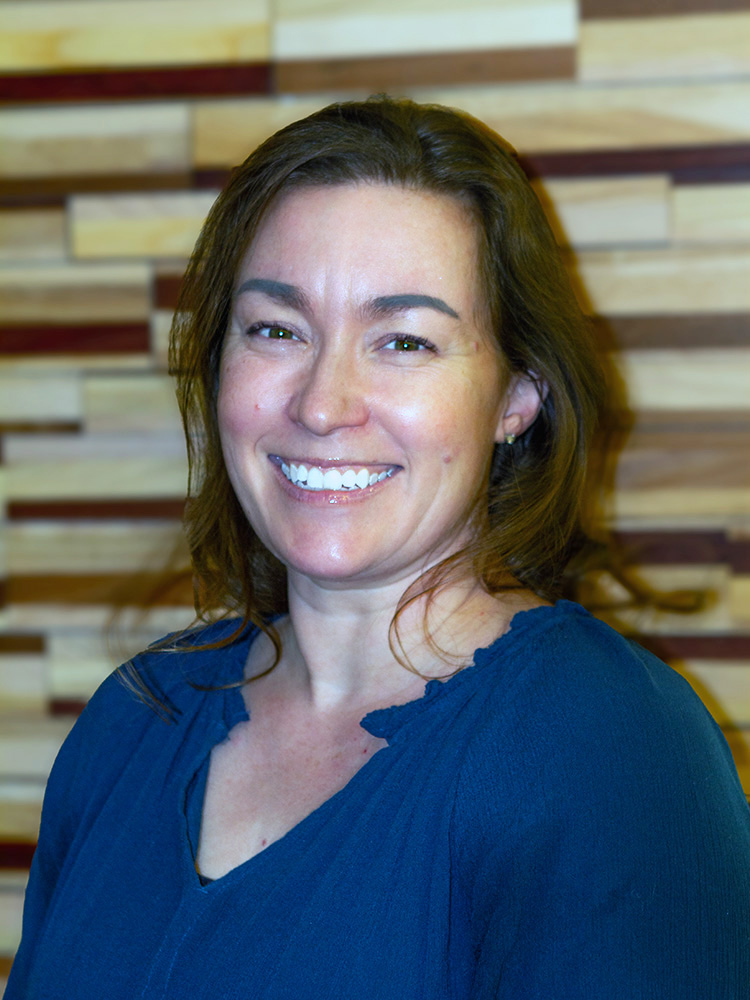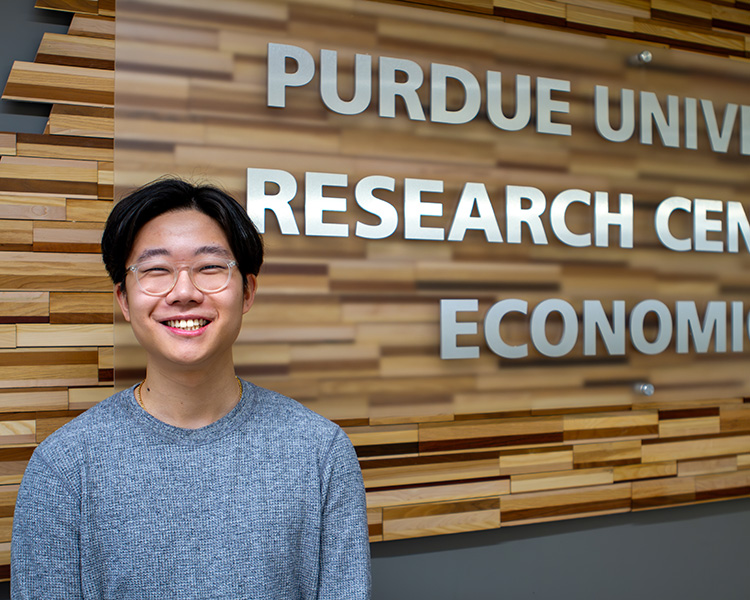
02-29-2024
Data is often considered impersonal and scientific, but a Purdue business school research assistantship program for undergraduate students proves that data analysis can do more than drive decisions — it can serve as a catalyst for confidence and connection.
The Undergraduate Research Assistantship (UGRA) program, organized and funded by the Daniels School’s Purdue University Research Center in Economics (PURCE), launched in August 2023 with a cohort of 10 economics students. The program arose out of a desire to give undergraduates more direct exposure to economic research — something that’s typically reserved for graduate students.

Students are paired with a professor from Purdue’s department of economics and are paid for up to 10 hours a week to assist with real research projects. Through hands-on work and weekly cohort meetings, UGRAs learn research design, quantitative data analysis, database management, and presentation skills.
“Before joining the program, I had no research experience and was curious about the systematic procedures involved in conducting research,” says Ruilin Chang, a senior from Beijing, China, with a major in economics and a minor in mathematics. “I was aware that undergraduate opportunities for engaging in research are relatively scarce. Fortunately, the UGRA program offered an excellent opportunity to learn the necessary skills for research.”
Chang is currently examining the decision-making impact of noisy factors in time series models, particularly in terms of overreactions to specific events. This research has potential applications in the financial market, where it could provide insights into behavioral patterns related to buying and selling stocks.
For most students, the UGRA program was their first opportunity to engage in research. “My biggest takeaway has been the realization that research is very different from most of the work I've done up to this point,” says Andy Kim, a senior in economics from West Lafayette, Indiana.
This semester, Kim is working with Associate Professor of Economics Timothy Bond on a project measuring the impact of the Great Migration on national labor markets and racial inequality. Kim is translating census data across decades into comparable data sets and developing code in Stata to calculate labor demand and migration.
“Whereas a lot of classes as an undergraduate student teach you the broad methods used in research, actually applying those skills involves nuances I didn't expect,” he says. “Everything I'm doing as a UGRA feels very open-ended, which can be challenging, but the ability to use my own skills to come up with solutions and overcome roadblocks has been very empowering.”

Kim’s observation reflects the ethos that UGRA Program Mentor Karis Pressler has been trying to foster. “With the students, I’ve talked a lot about the importance of advocating for oneself,” Pressler says. “And now I’m seeing the students’ confidence grow. I'm noticing more students taking charge, taking initiative, and taking it upon themselves to be curious and remain curious in their research.”
Pressler herself does not come from a background in economics. She graduated from Purdue with a dual-title PhD in sociology and gerontology, the study of aging, in 2014. This background has enabled Pressler to bring a unique perspective to the program.
Her weekly meetings, which include a free lunch for the students, start with dedicated time for the UGRAs to get to know each other. Following this casual conversation, Pressler invites the students to share one good thing about their research, one “okay” thing about their research, and one good thing about their week, a process she calls "Good Okay Good,” or GOG, that helps students discover common connections. Then she gives the floor to the students for brief presentations on the research they’ve been doing and the challenges they’ve encountered.
Jakub Jasinski, a sophomore in economics from Westmont, Illinois, reflects on the importance of these lunch sessions. “If it wasn't for the weekly lunch meetings with the other UGRAs to talk about our research, learn more about data analysis, and just catch up with one another, I don't believe I would have been so invested in the program,” he says.
When asked if they would recommend the program, student responses were unanimous. “Absolutely do it,” says Jasinski. “If you are considering graduate school or just want to try research, this is the best time to try. We are all rooting for one another. Being in an environment where everyone cares has made me a better researcher.”
PURCE Kozuch Director Kevin Mumford, a Daniels School economics professor, says the UGRA program involves carefully considered “matchmaking” between professor and student, and benefits both.
“Our undergraduates get the chance to experience how modern research is conducted, and our faculty get much-needed assistance with their many research projects,” Mumford says. “We have long employed UGRAs, but Karis has taken the program to the next level by creating a cohesive cohort and meeting in-person with the students each week to discuss their progress and any challenges.”
With the UGRAs, Pressler strikes a balance between teaching, encouraging, and asking questions, but she leaves it up to them to make the experience what they want it to be. “It’s as much a learning experience for them as it is for me. We’re all learning and growing together.”